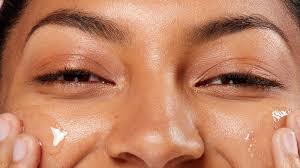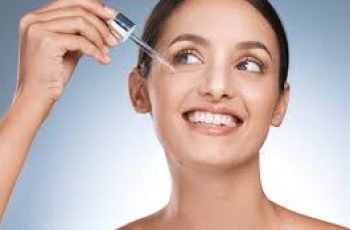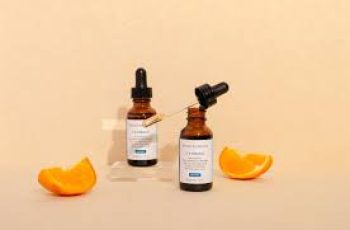
The Science of Castor Oil in Skincare
Castor oil is a popular ingredient in many skincare products that treat rosacea. But what exactly is castor oil? And what benefits does it have for the skin?
In this blog post, we explore the composition and properties of castor oil that make it an effective ingredient for dry, sensitive, oily, aging, rosacea, and acne-prone skin.
We also outline proper application and possible risks. Read on to learn more about how to harness the power of castor oil for skin care based on your individual skin type.
What is castor oil?
Castor oil is extracted from the seeds of the castor plant, Ricinus communis L., which belongs to the Euphorbiaceae family. (3) Castor is native to tropical regions such as China, India, and Brazil.
Castor oil is used commercially for a variety of industrial purposes, such as lubricating aircraft engines and producing dyes, detergents, and paints. (3)
In skin care, castor oil is used to soothe sensitive skin due to its beneficial skin lipids and phenolic antioxidants. (3)
What is castor oil made of?
The main component of castor oil is the triglyceride fatty acid ricinoleic acid, which accounts for nearly 90% of castor oil.
Ricinoleic acid is unique in that it is a hydroxy fatty acid produced by chemically modifying oleic acid. (5)
Other fatty acids found in smaller amounts in castor oil are linoleic acid, oleic acid, linolenic acid, palmitic acid, and stearic acid. (2)
Linoleic acid and linolenic acid have anti-inflammatory properties and can moisturize the skin. The oil also contains antioxidants such as vitamin E, carotenoids, phospholipids, and beta-sitosterol.
What is ricinoleic acid?
Ricinoleic acid is an 18-carbon monounsaturated fatty acid with a structure similar to oleic acid, but with an additional hydroxyl group.
This structure gives ricinoleic acid the ability to break down fat. (It is an emulsifier.) (5)
Ricinoleic acid also has analgesic and anti-inflammatory properties. Its effects are similar to capsaicin, the active ingredient in chili peppers.
Unlike capsaicin, however, ricinoleic acid does not cause any initial stinging or burning sensation. (6) Repeated application of ricinoleic acid over several days can reduce inflammation and swelling.
Benefits of Castor Oil in Skin Care
The ingredients in castor oil offer a variety of benefits that make it suitable for different skin types and conditions:
Ricinoleic acid has anti-inflammatory properties that can soothe irritation and redness. (4, 6, 7)
Ricinoleic acid can relieve minor pain. (4, 6)
Castor oil has antibacterial properties that can fight acne-causing bacteria. (8)
Fatty acids nourish and moisturize the skin barrier. (2)
Vitamin E and other antioxidants protect against damage caused by free radicals. (3)
Castor oil can help treat skin problems such as hyperpigmentation. (2)
Eye creams can be used to treat blepharitis (inflammation of the eyelids). (1)
Here are some of my favorite castor oil products:
Side Effects of Castor Oil
Castor oil is generally safe for topical use. The Environmental Working Group (EWG) gave castor oil a safety rating of 2 – an excellent result.
Pregnant women should avoid taking castor oil without a doctor’s advice, as it may trigger labor. (10)
When applying castor oil, only use a small amount, as excessive amounts can leave it feeling greasy. Discontinue use if irritation occurs.
Skin Conditions Castor Oil Can Treat
Castor Oil for Rosacea
Castor oil is primarily composed of ricinoleic acid, which is commonly used to treat rosacea due to its anti-inflammatory properties.
Ricinoleic acid is an unsaturated omega-9 fatty acid that has anti-inflammatory properties, soothing irritated skin and reducing facial redness and flushing.
For this reason, castor oil is a popular natural remedy for rosacea.
The anti-inflammatory effects of ricinoleic acid are crucial in rosacea treatment, as it can significantly reduce the characteristic redness, facial flushing, and inflammation associated with the condition.
Castor oil for rosacea can relieve the visible symptoms of the condition and offer a natural and gentle treatment option for anyone seeking relief from this chronic and often painful skin condition.
Castor Oil for Dry Skin
The hydrating and fast-acting fatty acids in castor oil make it an excellent moisturizer for dry skin. Ricinoleic acid has a soothing effect on flaky, irritated skin.
Castor oil has a thick texture and forms an occlusive barrier on the skin to prevent moisture loss.
Castor oil is found in moisturizing serums, creams, oils, and masks to combat dryness. You can also apply a thin layer of pure, cold-pressed castor oil to dry areas overnight.
Focus on dry areas such as the hands, heels, elbows, and chapped skin.
Castor Oil for Oily Skin
Although castor oil has a greasy texture, it can benefit oily and acne-prone skin when used properly. Castor oil’s antibacterial properties can eliminate acne-causing bacteria on the skin. (8) Ricinoleic acid helps reduce the inflammation that leads to breakouts.
If acne-fighting ingredients like salicylic acid or benzoyl peroxide are causing dry skin, a moisturizer with castor oil can improve hydration without clogging pores.
Oily skin should use a cleansing oil with castor oil to remove makeup and dirt while retaining moisture.
Here are some of my favorite castor oil products for oily skin:
Castor Oil for Aging Skin
Castor oil contains fatty acids and vitamin E that nourish aging skin and combat dry skin common during menopause.
The antioxidants in castor oil also protect mature skin from wrinkle-causing free radicals that accumulate with age.
For sun spots and uneven skin tone, applying castor oil to areas of pigmentation can reduce discoloration due to its ability to inhibit melanin production.
Here are some of my favorite anti-aging castor oil products:
Castor Oil for Acne
When used in moderation, castor oil can help acne-prone skin. Castor oil’s antibacterial properties make it a great addition to acne cleansers.
(8) Ricinoleic acid can reduce inflammation that leads to breakouts.
When using castor oil to treat acne, don’t use pure castor oil, as its thick consistency can clog pores.
While castor oil can be safely used as one of many ingredients to treat acne-prone skin, the palmitic acid it contains may pose a comedogenic risk.
Check to see if your skin can tolerate castor oil before applying it all over your face.
Here are my favorite castor oil products for acne-prone skin:
Castor Oil Anti-Inflammatory
One of the main benefits of castor oil is its anti-inflammatory properties. Ricinoleic acid soothes irritation and swelling caused by contact.
Using castor oil can help soothe inflammatory skin conditions like eczema and psoriasis.
Castor oil can also help relieve the pain of sunburns, thanks to the analgesic effects of ricinoleic acid. Castor oil can also be added to soothing aloe vera gel to soothe sunburns.
Here are my favorite castor oil anti-inflammatory products:
Final Thoughts
Castor oil has many benefits for the skin due to its nourishing fatty acids, antioxidants, and antibacterial properties.
Ricinoleic acid can relieve inflammation, which is the root cause of many skin conditions, such as acne, eczema, and sunburn.
Castor oil provides deep moisturization for dry skin and ensures that oily, acne-prone skin maintains balanced moisture levels.
When shopping for skincare products, look for castor oil in the ingredient list to meet your individual skin needs.
Castor oil is suitable for all skin types and can improve skin care all year round. Let us know your experiences with castor oil in the comments!
Take the Bowman Skin Type Test today to see if castor oil is right for you!


